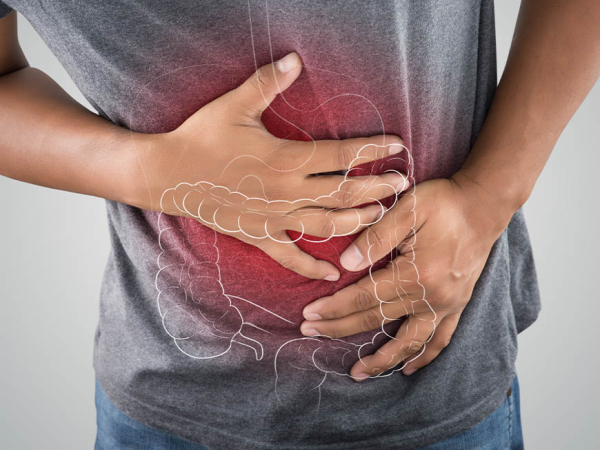Irritable bowel syndrome with diarrhoea (IBS-D) is a common chronic condition that can significantly impair quality of life. It is one of the most common causes of visits to the gastroenterologist. The prevalence of irritable bowel syndrome in the Czech Republic is comparable to other European countries. It is reported that the prevalence of this syndrome in the Czech Republic is approximately 15% in women, and in men, it is slightly lower, at 10%. At the end of 2018, a large study was launched in the UK; it aims to confirm the efficacy and safety of ENTEROSGEL®, an intestinal adsorbent approved for the symptomatic treatment of irritable bowel syndrome. The sponsor of the study is the Czech manufacturer of the product Bioline products s.r.o.
IBS therapy is complex and there is no one-size-fits-all approach. The development of new drugs and devices for IBS-D is slow and there is a need for new methods, including non-medicinal therapies that are easy to use and suitable for different patient groups. Currently, available non-drug therapies include the medical device ENTEROSGEL®. This intestinal adsorbent is approved for the symptomatic treatment of irritable bowel syndrome with diarrhoea and acute diarrhoea. ENTEROSGEL® is over-the-counter in the Czech Republic and 30 other countries worldwide.
The rationale for the use of the intestinal adsorbent ENTEROSGEL® in the treatment of IBS symptoms is its ability to bind various toxins and other harmful substances and remove them from the gastrointestinal tract along with the stool [1]. There is also evidence that the use of the intestinal adsorbent dioctahedral smectite can strengthen the function of the intestinal barrier, which prevents the action of pro-inflammatory cytokines on the intestine [2, 3]. While the role of the intestinal barrier in IBS is not well understood, there is increasing evidence to suggest that its function is altered in IBS regardless of disease subtype [4].
Although there has been extensive research on ENTEROSGEL®, including pilot studies in IBS-D that reported normalization of stool frequency and form and reduction in pain [5,6], none of the studies to date have included a placebo group. The difficulty of placebo in the case of ENTEROSGEL® is that substances with a gel-like consistency of ENTEROSGEL® (e.g., gelatin or starch-based) could have effects in the GI tract and thus are unsuitable as placebos.
With this in mind, a randomized, double-blind, multicentre trial was launched in late 2018, underway in the UK to overcome these challenges. The study is involving 27 hospitals and medical centers across the UK. This research aims to confirm the efficacy and safety of ENTEROSGEL® compared to placebo for the symptomatic treatment of 430 patients diagnosed with IBS-D according to the ROME IV criteria. The study is sponsored by the Czech product manufacturer Bioline products s.r.o.
In the study, patients are divided into two groups, half of the patients receive ENTEROSGEL® and the other half receive a placebo (patients do not know what they are taking) for 8 weeks. Because many patients do not have sufficient symptom relief with their current therapy, all patients are then given ENTEROSGEL® for an additional 8 weeks so that the patients receiving a placebo can also try ENTEROSGEL® therapy. In both phases, patients can regulate the dosage of ENTEROSGEL® according to the severity of their symptoms (from 1 tablespoon per day to 6 tablespoons per day, the standard dose so far for IBS-D is one tablespoon 3 times a day).
During the study, all patients are asked to complete a daily questionnaire where they are asked about their IBS symptoms, quality of life, work productivity, daily activity, and general health. This questionnaire persists in the open-label phase of the study, where patients already know they are taking ENTEROSGEL®.
After the last patient completes the study, the primary and secondary objectives are assessed.
The primary objective of the study is measured as the percentage of responders to therapy based on the questionnaire data. Therefore, to be considered a responder, a patient must have a reduction in stool frequency of at least 50% and also a reduction in abdominal pain of at least 30% per week for at least 4 weeks out of the total 8 weeks of the study.
Secondary endpoints will assess stool frequency, stool consistency, abdominal pain, flatulence, urgency to pass stools, general relief of IBS symptoms, severity of IBS, work productivity and daily activity, quality of life, other somatic symptoms (headache, fatigue, etc.), and the number of treatment side effects.
The study is planned to be completed by the end of 2020 and once the data has been processed, the study will be published as soon as possible.
However, even as the study is ongoing, positive reviews, comments, and thank you messages have started to appear on the UK product website (https://enteromed.co.uk/reviews/) from patients who have already found ENTEROSGEL® to be a real help in improving their quality of life.
